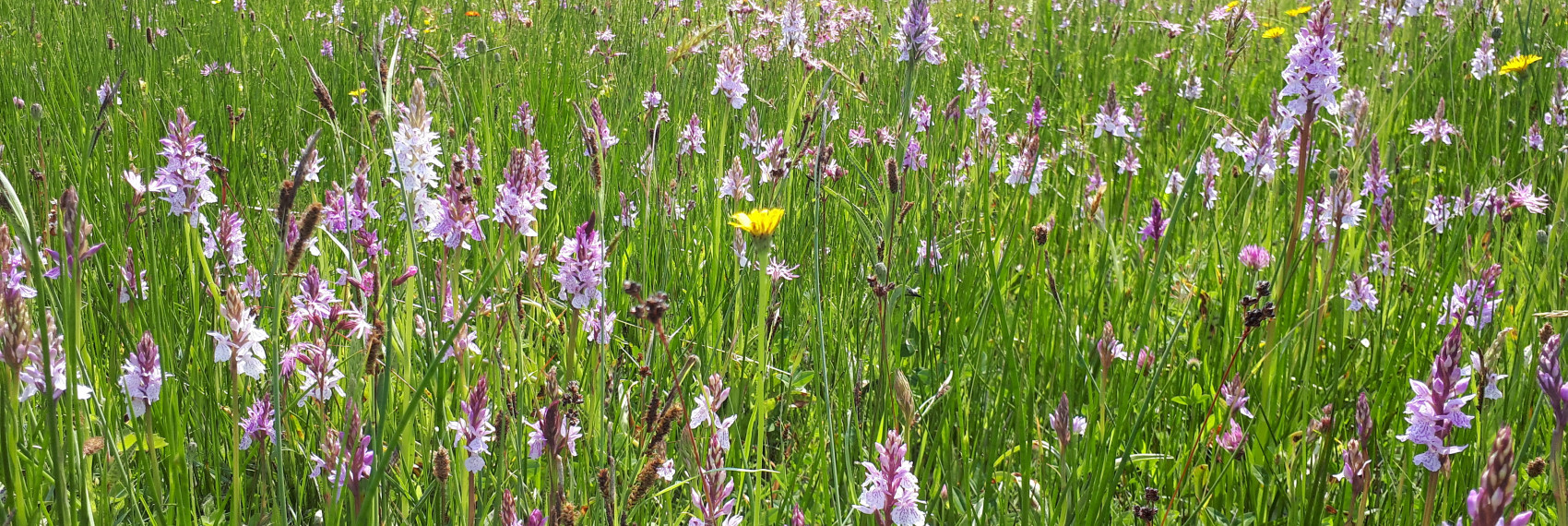Nature development
The conversion of former agricultural land to nature often takes place as part of the establishment of the Netherlands Nature Network (NNN, formerly the National Ecological Network).
From experience, we know that the chances of successful nature development on former agricultural lands are strongly determined by the availability of phosphorus. Due to years of fertilization, many soils are (strongly) enriched with phosphate. A physical-chemical study of soil and sometimes other factors offers insight into the nature potential: which plots of land are suitable for the successful development of species-rich nature types and where would such attempts be fruitless. It is therefore advisable to conduct such a study early in the planning process. The study will also make clear what measures are needed to achieve certain goals. To provide practical advice on soil excavation or sodding, we have been collaborating with the Louis Bolk Institute for many years.
When soil profiles are sampled, the current groundwater level is also determined. In addition, the average highest and lowest groundwater levels (in Dutch GHG and GLG, respectively) are derived from the soil profile. This provides a first insight into the hydrological conditions. Furthermore, soils are analyzed to determine the chemical composition at different soil depths. In addition to the soil investigation, hydrochemical analyses of the phreatic groundwater (from boreholes or monitoring wells) or surface water are often also carried out to determine whether the water quality is suitable for the intended nature development goals or whether it forms a bottleneck.
Do you have questions about nature development? Would you like to enquire about commissioning a study, the available methods or costs? Or would you like to receive a brochure? Please contact Research Centre B-WARE at info@b-ware.eu
